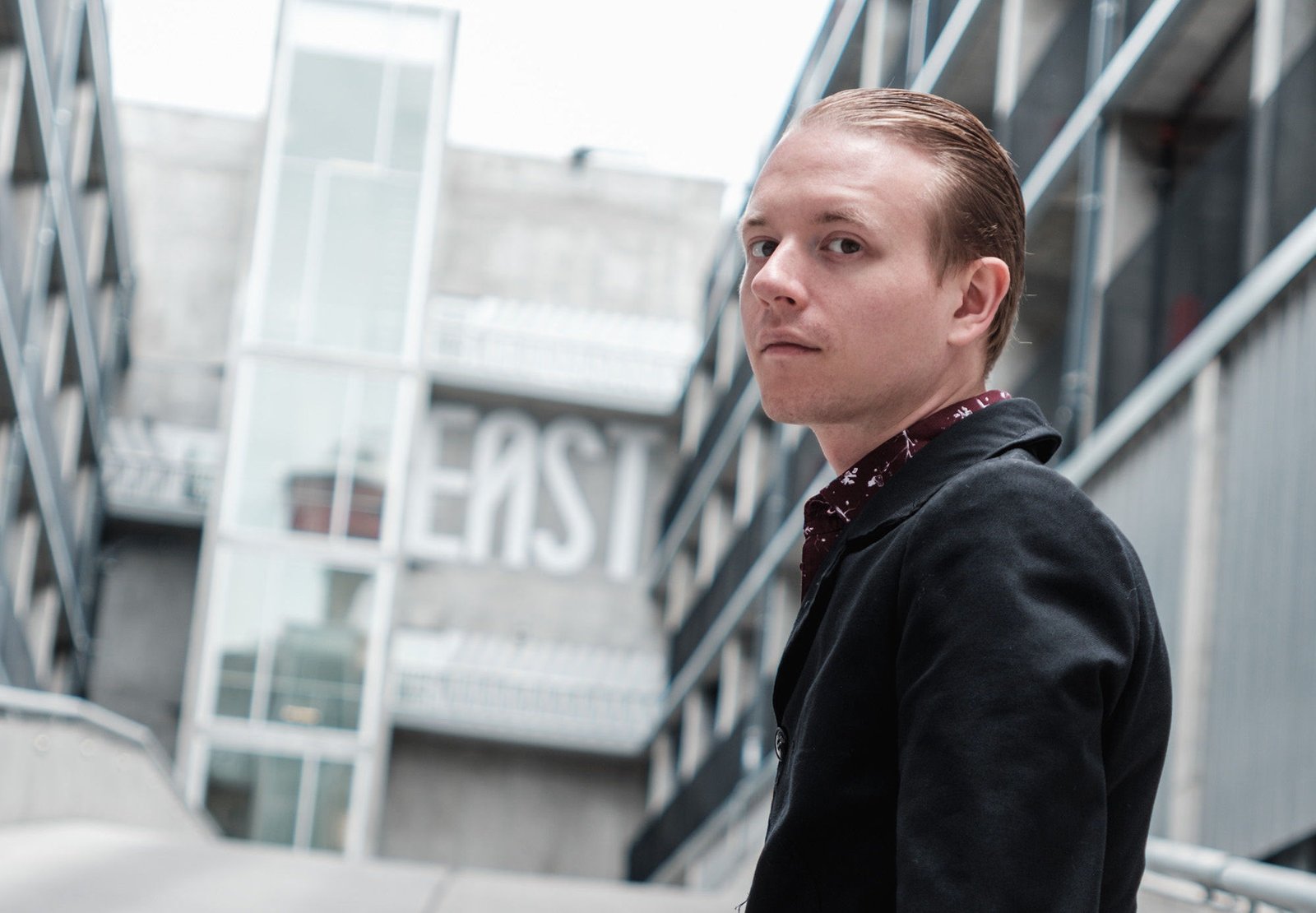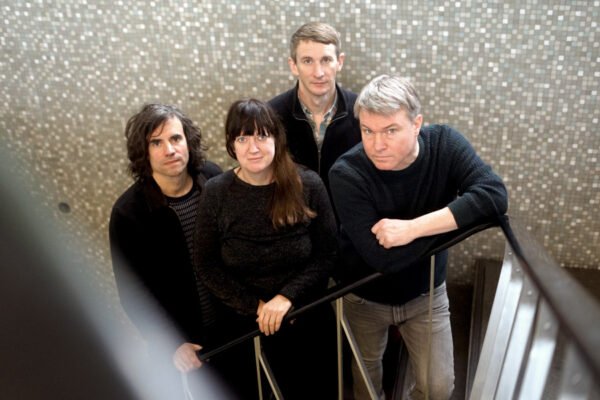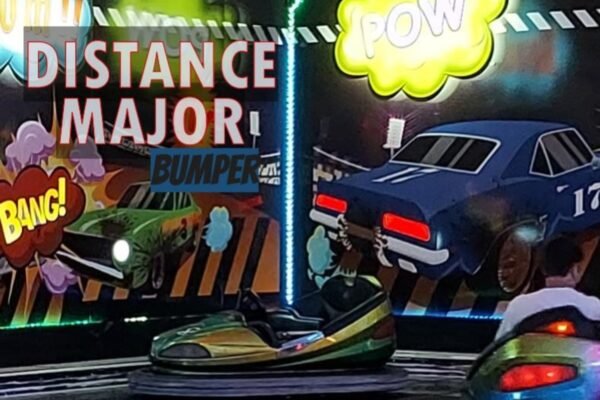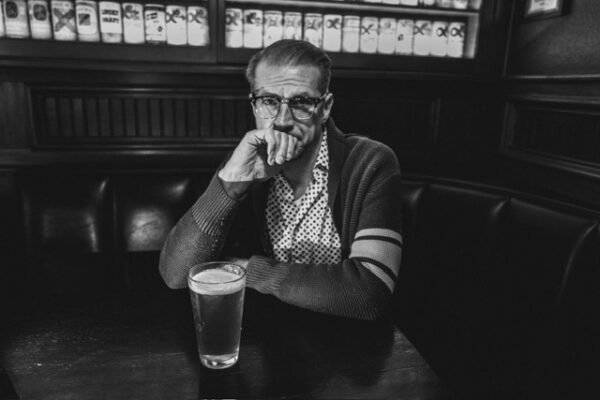Hi! This EP explores the pain of unrequited love. What draws you back to that theme in your songwriting, and how do you keep it feeling fresh for yourself?
A: It’s a theme I know all too well, so it’s easy to keep pulling from it. Keeping it from getting too repetitive is the biggest challenge for it, so here I’ve made an effort to tackle the subject from a different angle for each track: “I’m Not in Love with You” is about the distress I experienced from someone I was seeing cut things short when I wanted to keep going, “I Want Your World” is about my social anxiety preventing me from approaching the people I’m interested in, “Somebody That Someone Can Love” is about the struggle of trying to become someone better that would attract people more easily, and “When I Can See You” is about the temporary comfort of talking with and making plans with someone.
The opening track is your most collaborative to date. How did working with a full band shape the sound differently compared to your more solitary, bedroom-style process?
A: The original mix of the track was very much rock band-oriented. The melodic synth part you hear in the released version didn’t exist at the time; there were originally a couple of guitar parts that I unfortunately had to cut because it didn’t work with the rest of the sound of the EP. The session was the first time I’d been in a high-end recording studio since my university days and the first time I recorded something with every instrument in the room at once (it was part of a residency program so time was tight; the session was a shockingly short 3 hours long). I also had to make sure what I was writing was feasible for professional session musicians to learn in a day or less, as opposed to my usual process of writing MIDI notes and not worrying about how to actually play it until I put it into a setlist for a live show.
You’ve mentioned recording vocals at a close friend’s home. Does being in that kind of intimate, familiar space influence how you deliver your performances?
A: There’s definitely a comfort in recording vocals with someone who’s already familiar with your work and you as a person. It gives a greater feel of confidence that they’re invested in what you’re doing than when it’s an engineer you’ve never met, and so it makes me feel a little bolder with what I’m going to do even if the gear and setting aren’t themselves as ideal. I also started off recording vocals by myself at home, which is where my self-criticism is at its worst because I have no one to encourage me to keep going or assure me that we can do a few more takes to see if it turns out better.
A lot of listeners describe your music as “lonely songs for dancing”. Do you see your songs more as catharsis for yourself or as a way of creating community on the dance floor?
A: It’s a matter of personal taste more than anything. There are a few factors in music that determine whether it speaks to me or not, and having a good beat and good percussive sounds are among them. It’s an easy way to get people to enjoy the music even if they don’t necessarily relate to the lyrics.
You’ve pulled from different corners of electronica on this project. Were there particular sounds, subgenres, or even non-musical influences that surprised you while shaping these tracks?
A: Synth-pop and new wave are pretty much permanent genre references in my repertoire, but on some of these songs I also pulled from darkwave, industrial and club music. “I’m Not in Love with You” is inherently more alt-rock oriented due to its origins. “I Want Your World” is the most overt I’ve gotten in taking cues from Depeche Mode. “Not What You Want” pulled from the more grounded indietronica sound that artists like Nation of Language are doing. “Somebody That Someone Can Love” uses filters on the synth sounds that were common in witch house.
Touring across Canada has put you on stages with some big names in the alternative scene. What lessons or inspiration have you taken away from those experiences?
A: Mostly the lesson that it takes an incredible amount of effort and a good support system to get to the sorts of levels they achieved. One of the most notable artists I’ve shared a stage with was Thierry Larose, who’s a francophone singer based in Montreal, and he’s also been one of my biggest supporters. I think the fact that I’ve been able to keep the attention of someone who has achieved enough success to sell out small theatres and comfortably tour overseas for this long gives me some hope that I’d be able to reach his level at some point if I can only find and retain the right audience and professional relationships.
Calgary isn’t always the first city people think of when it comes to synth-pop. How has your environment, musically and geographically, shaped your identity as an artist?
A: My hometown of Lethbridge is even worse for this, in fact. As a prairie city the agriculture and coal industries have a large sway on its culture and politics even after urbanization and the establishment of a university, and that’s reflected in the kind of music that is popular there (country, folk, hard rock and metal). Even though I’ve heard examples of each that I like, they don’t speak to me in the way other genres do. I think it was a similar situation to when Depeche Mode formed in Basildon: they felt like outsiders in a town too small for them and they decided to just own it and do something different. Calgary certainly has more room for synth-based artists, but you can still count the number of them on your hands, so there’s still a bit of that outsider feeling to it.
Some of your influences are bands like CHVRCHES, M83, and Depeche Mode. What’s something you’ve learned from their music that you’ve tried to push further in your own?
A: Each of them have taught me how to arrange sounds so everything is balanced. Each of them has delved into rock music to some extent; but it was a natural transition as electronic music is arranged in much the same way, you just replace one or both of the guitars with a keyboard. When you break down what different things you can hear it’s staggering how little they’re actually doing considering how huge the sound tends to be. They’ve also been a reference point for how to put emotion into my music, because there have been a few times where I’ve had to put thought into what they did with a song to make me feel a certain way.
On a personal level, what was the hardest song on this EP to finish, and why?
A: “I’m Not in Love with You.” The fact that the original version was done in a way that I couldn’t continue without making it impossible to replicate live made it a headache to rearrange. The only things that I knew I was keeping were the recorded synth pad and the bass guitar, and even those I had to edit so that they fit the new instrumentation better. The guitars were removed and re-added before being removed again because it became too cluttered. The drums were almost kept out, but the electronic ones didn’t have the same power to them so I had to re-insert snippets of the recording in discreet places. It was very difficult to make it mesh well with the rest of the EP, and if I’m being honest I’m still not totally convinced that it does.
Looking ahead, what’s next for you in the rest of this year—are you focusing on more touring, writing new material, or something entirely different?
A: Right now I’m working on a single that I hope to get out there sometime in 2026. I’ve asked a couple of friends in the Calgary indie scene that I really admire to get involved in it, so I very much look forward to getting it out there. I also plan to have a second track attached like I did with my previous standalone single, “You Will Not Love Me Forever”. It might also have a feature but we’ll see.
Listening to songs so you don’t have to! Just kidding :D, you totally should. Music blogger by day, nurse by night





